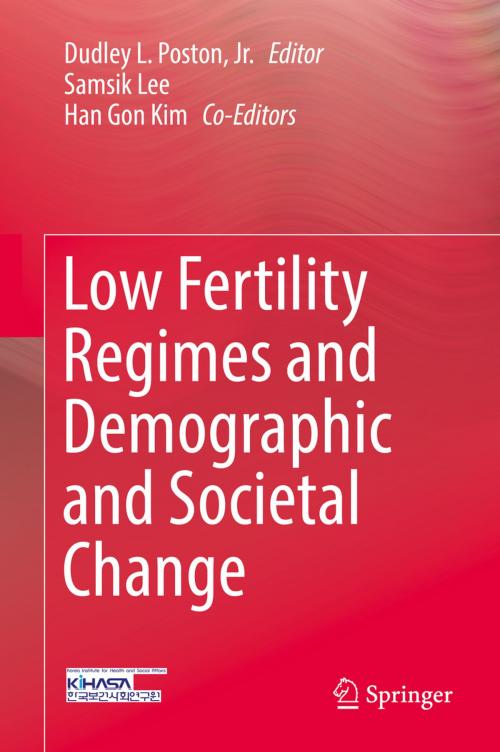Low Fertility Regimes and Demographic and Societal Change
Nonfiction, Social & Cultural Studies, Social Science, Demography, Political Science, Government, Social Policy| Author: | Samsik Lee, Han Gon Kim | ISBN: | 9783319640617 |
| Publisher: | Springer International Publishing | Publication: | October 27, 2017 |
| Imprint: | Springer | Language: | English |
| Author: | Samsik Lee, Han Gon Kim |
| ISBN: | 9783319640617 |
| Publisher: | Springer International Publishing |
| Publication: | October 27, 2017 |
| Imprint: | Springer |
| Language: | English |
This book explores how low fertility levels could fundamentally change a country's population and society. It analyzes the profound effects below average birthrates have on virtually all aspects of society, from the economy to religion, from marriage to gender roles. An introduction written by Dudley L. Poston Jr. provides a general overview of this relatively new phenomenon that has already impacted nearly one-half of the countries of the world today. Poston also discusses the broad implications of the changes that these societies are currently experiencing and the ones that they will soon confront. Next, each of the 12 essays collected in this volume look into how a low fertility level affects a particular demographic or societal structure or process. In addition, case studies offer an in-depth portrait of these changes in the United States and China. Coverage includes the dynamics of low and lowest-low (where the birthrate is well below average) fertility, high and increasing life expectancies in the United States, the implications of native-born fertility and other socio-demographic changes for less-skilled U.S. immigration, ageing and age dependency in post-industrial societies, good mothering and gender roles in China, the increasing prevalence of voluntary childlessness, how low fertility and prolonged longevity could result in slow economic growth, the decreasing relevance of traditional religious systems, and more. The emergence and persistence of population decline produced by low fertility levels has the potential to greatly alter key aspects of society as well as individual lives. Containing insightful analysis from some of the top minds in demography today, this book will arm readers with the knowledge they need to fully understand these transformations.
This book explores how low fertility levels could fundamentally change a country's population and society. It analyzes the profound effects below average birthrates have on virtually all aspects of society, from the economy to religion, from marriage to gender roles. An introduction written by Dudley L. Poston Jr. provides a general overview of this relatively new phenomenon that has already impacted nearly one-half of the countries of the world today. Poston also discusses the broad implications of the changes that these societies are currently experiencing and the ones that they will soon confront. Next, each of the 12 essays collected in this volume look into how a low fertility level affects a particular demographic or societal structure or process. In addition, case studies offer an in-depth portrait of these changes in the United States and China. Coverage includes the dynamics of low and lowest-low (where the birthrate is well below average) fertility, high and increasing life expectancies in the United States, the implications of native-born fertility and other socio-demographic changes for less-skilled U.S. immigration, ageing and age dependency in post-industrial societies, good mothering and gender roles in China, the increasing prevalence of voluntary childlessness, how low fertility and prolonged longevity could result in slow economic growth, the decreasing relevance of traditional religious systems, and more. The emergence and persistence of population decline produced by low fertility levels has the potential to greatly alter key aspects of society as well as individual lives. Containing insightful analysis from some of the top minds in demography today, this book will arm readers with the knowledge they need to fully understand these transformations.















